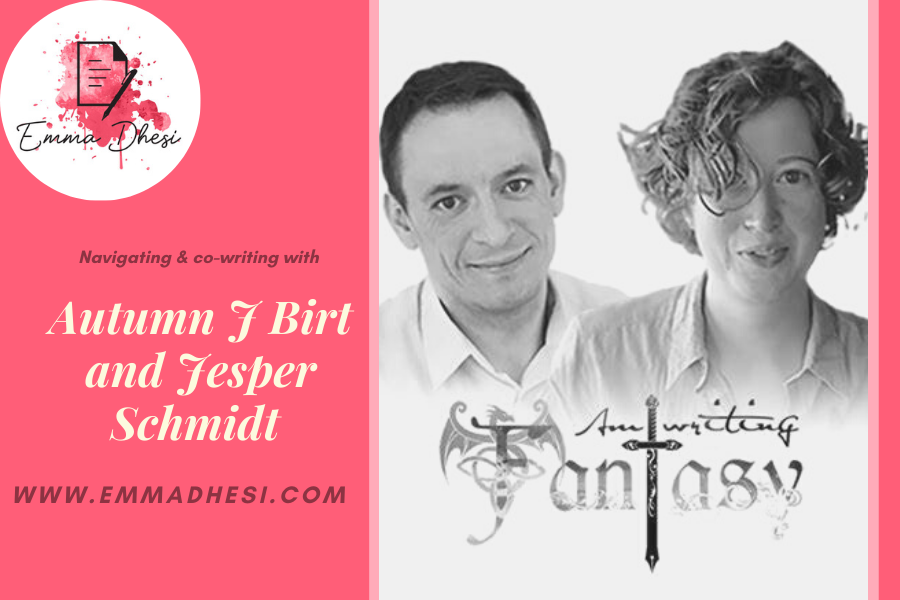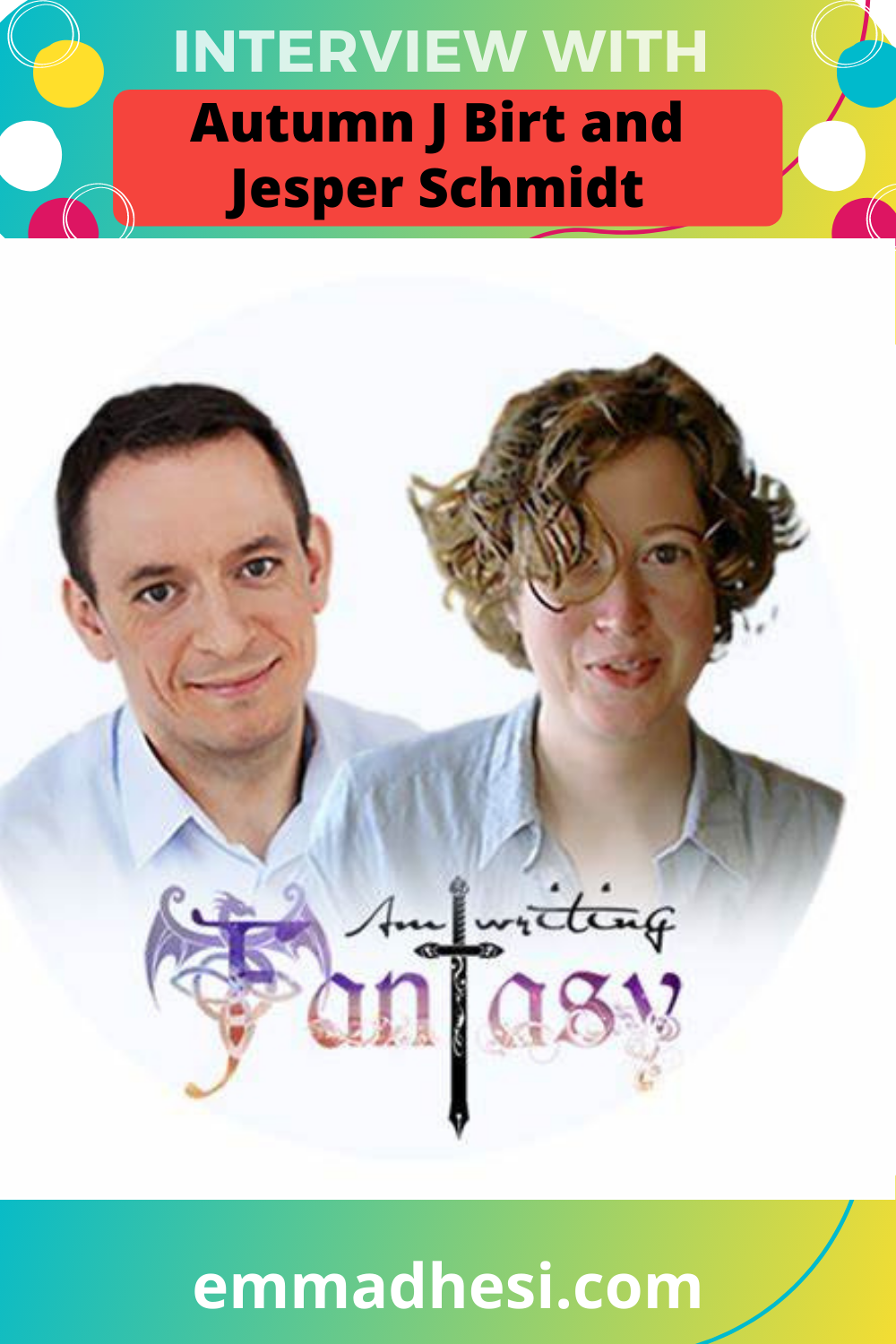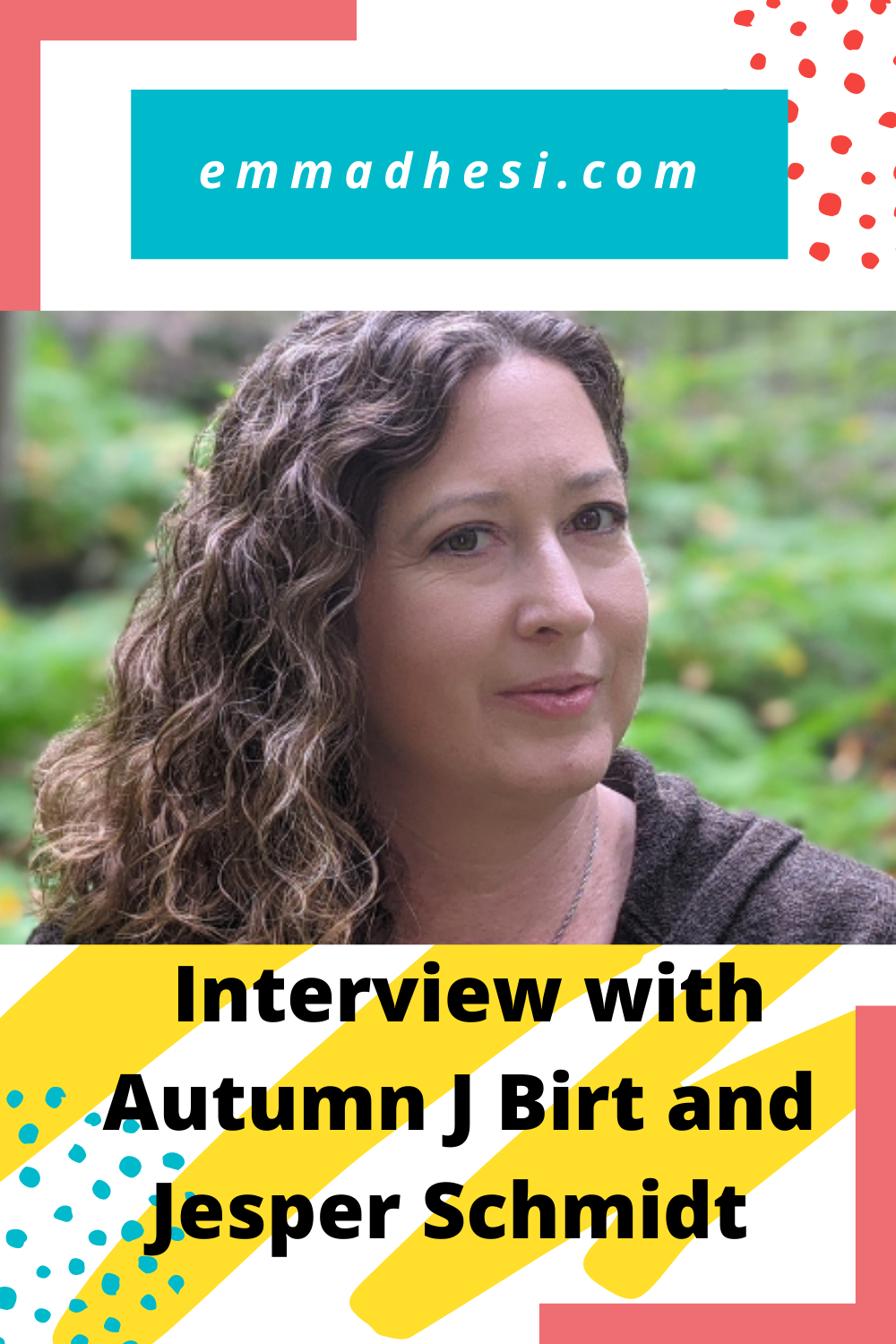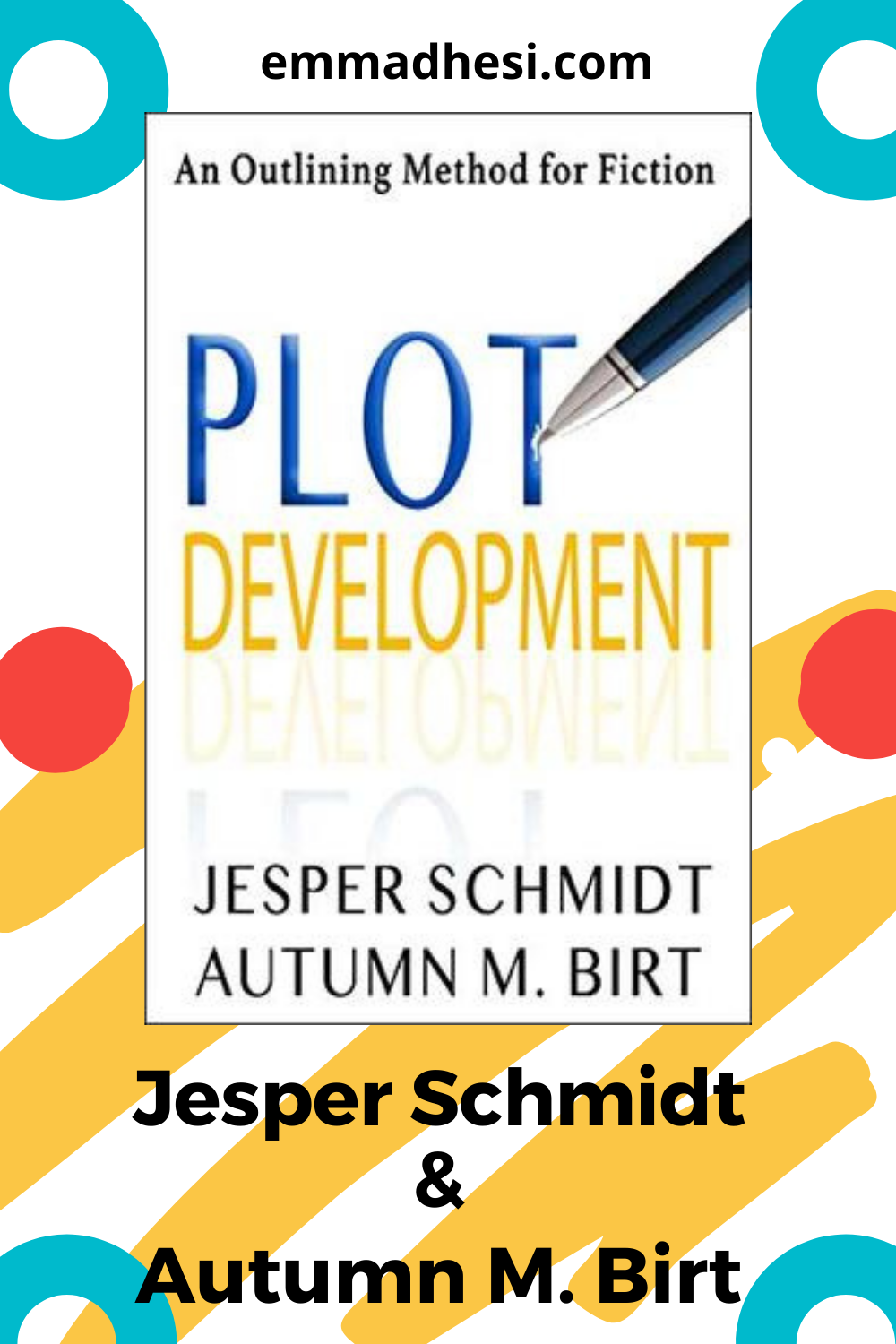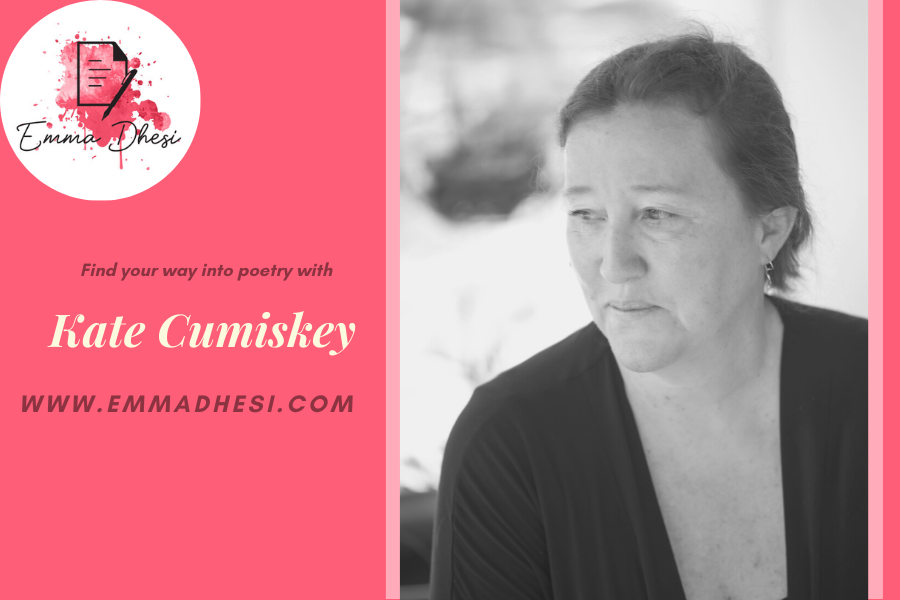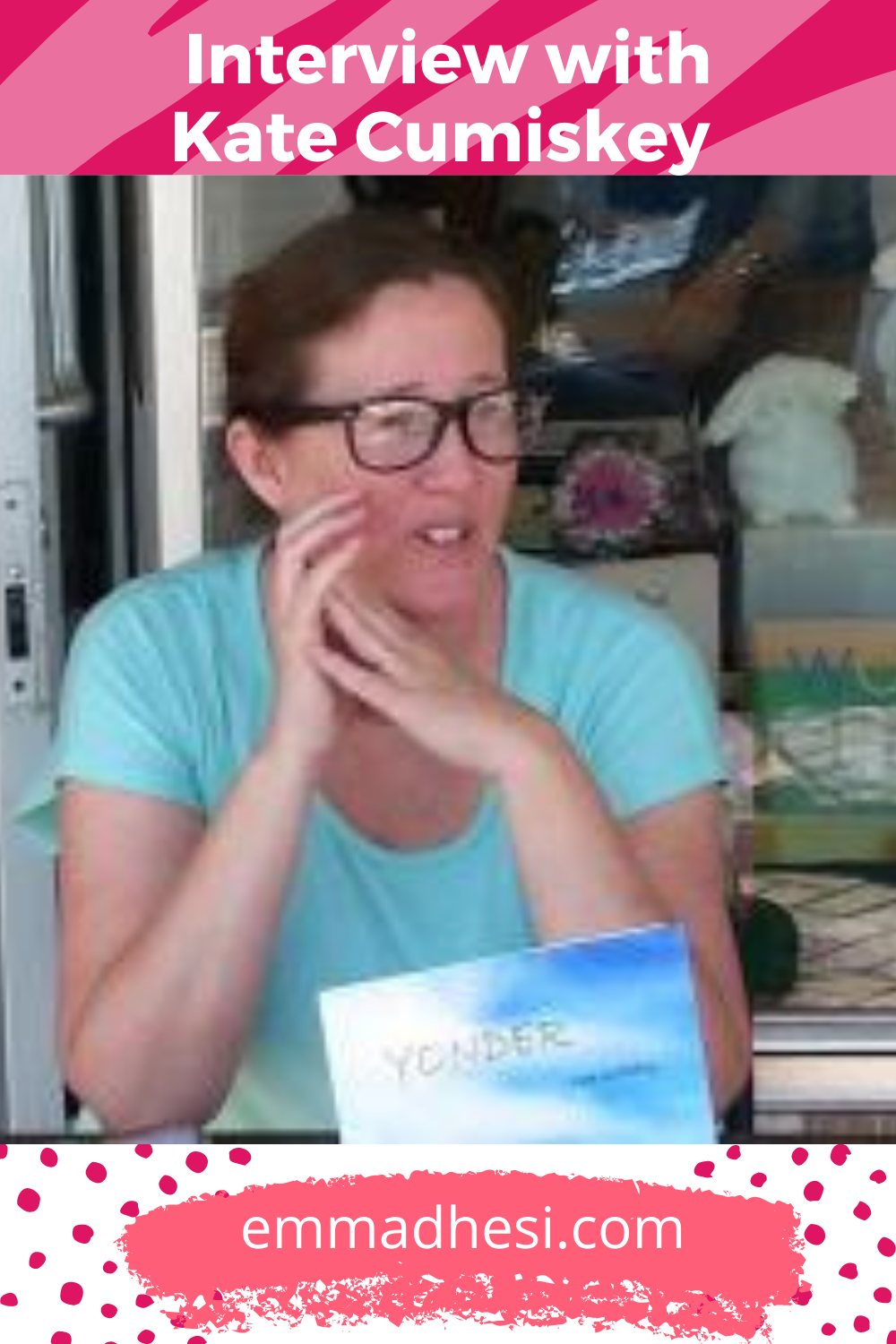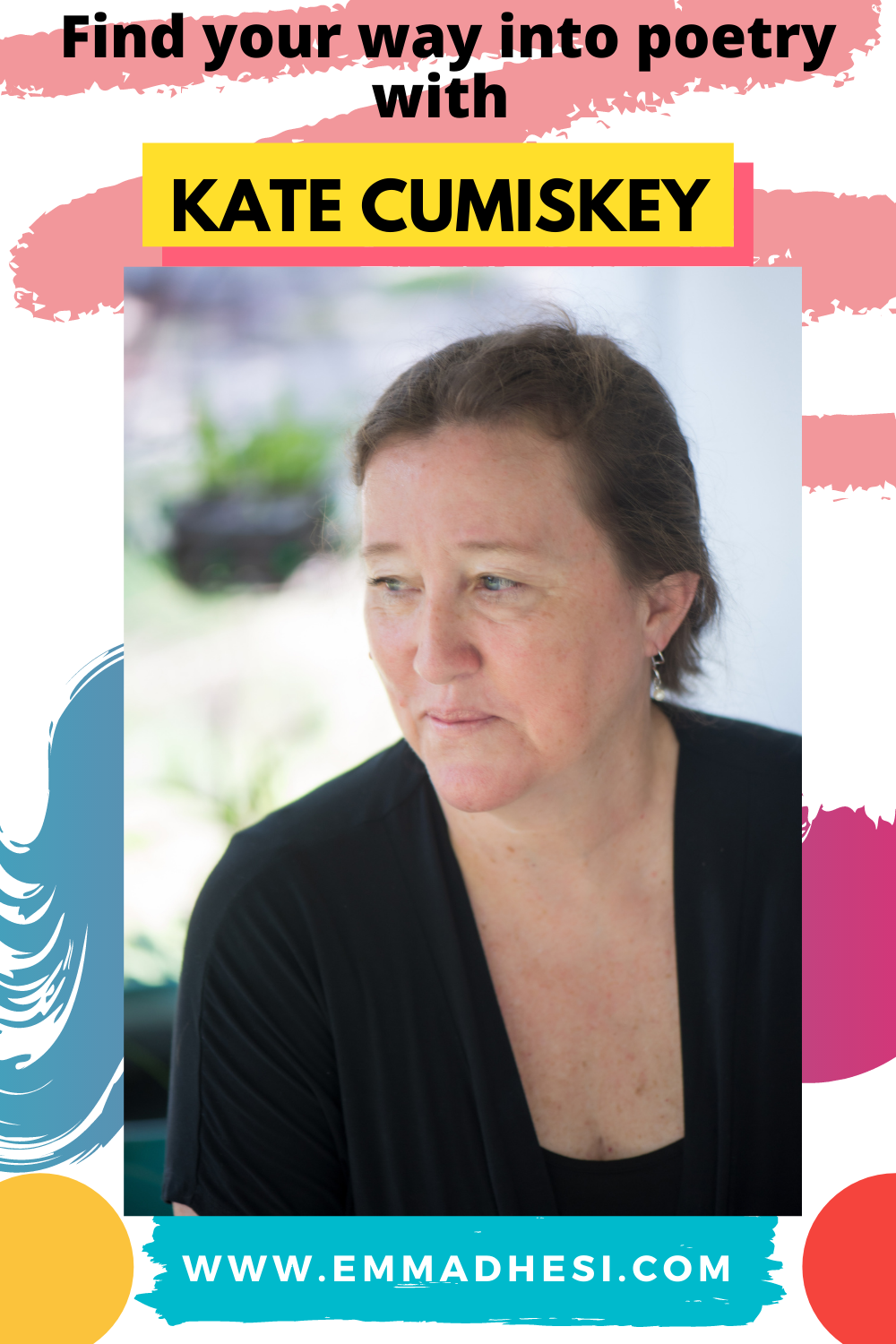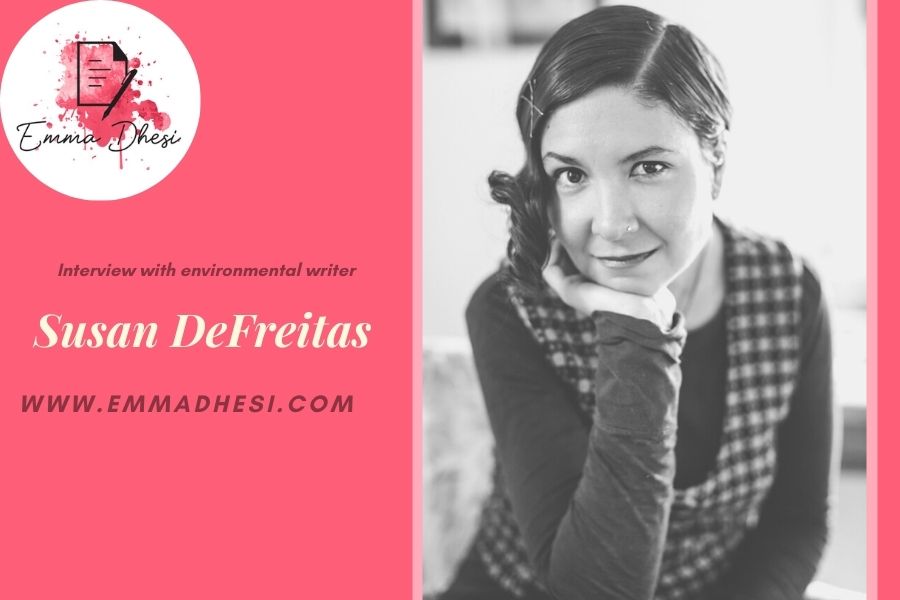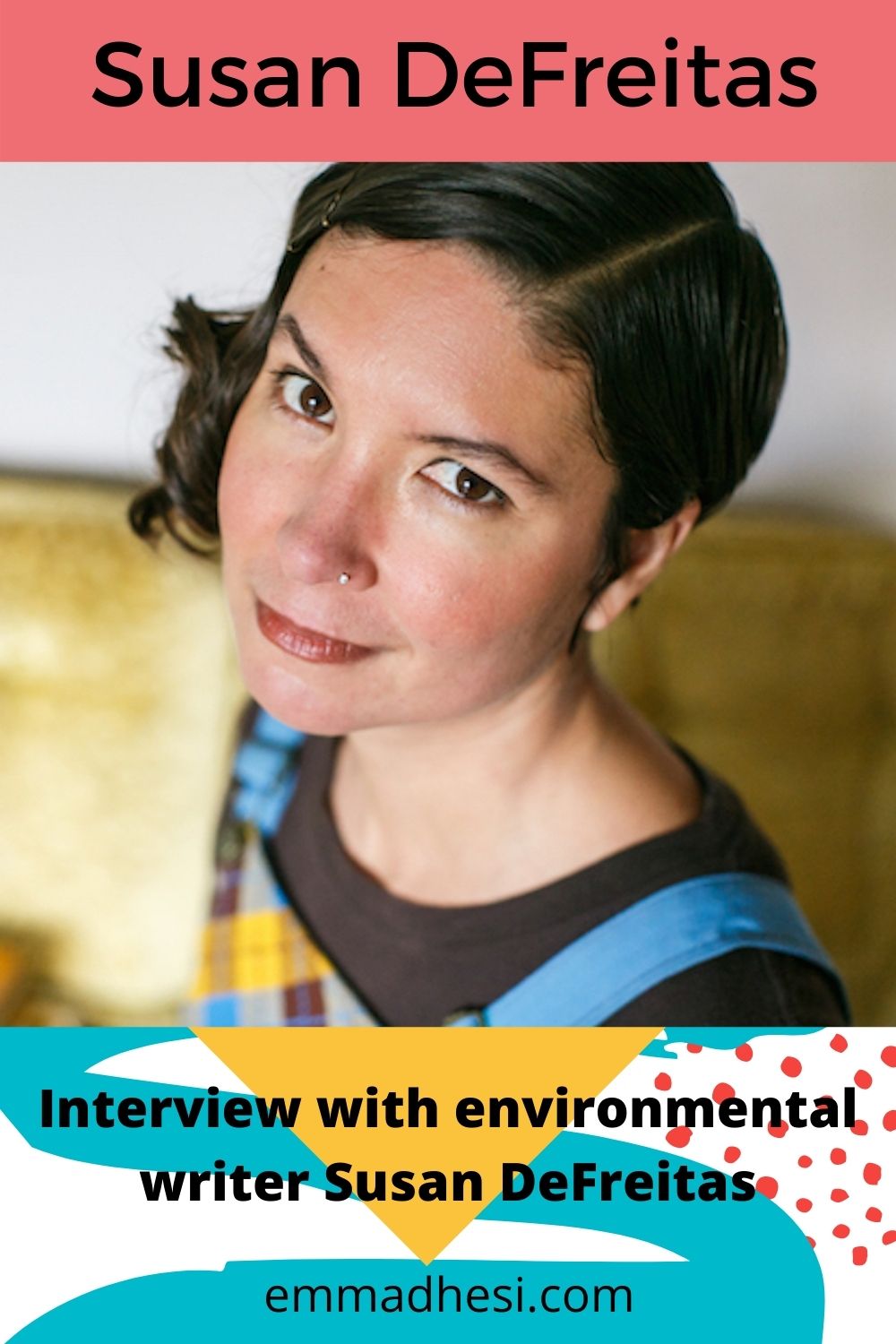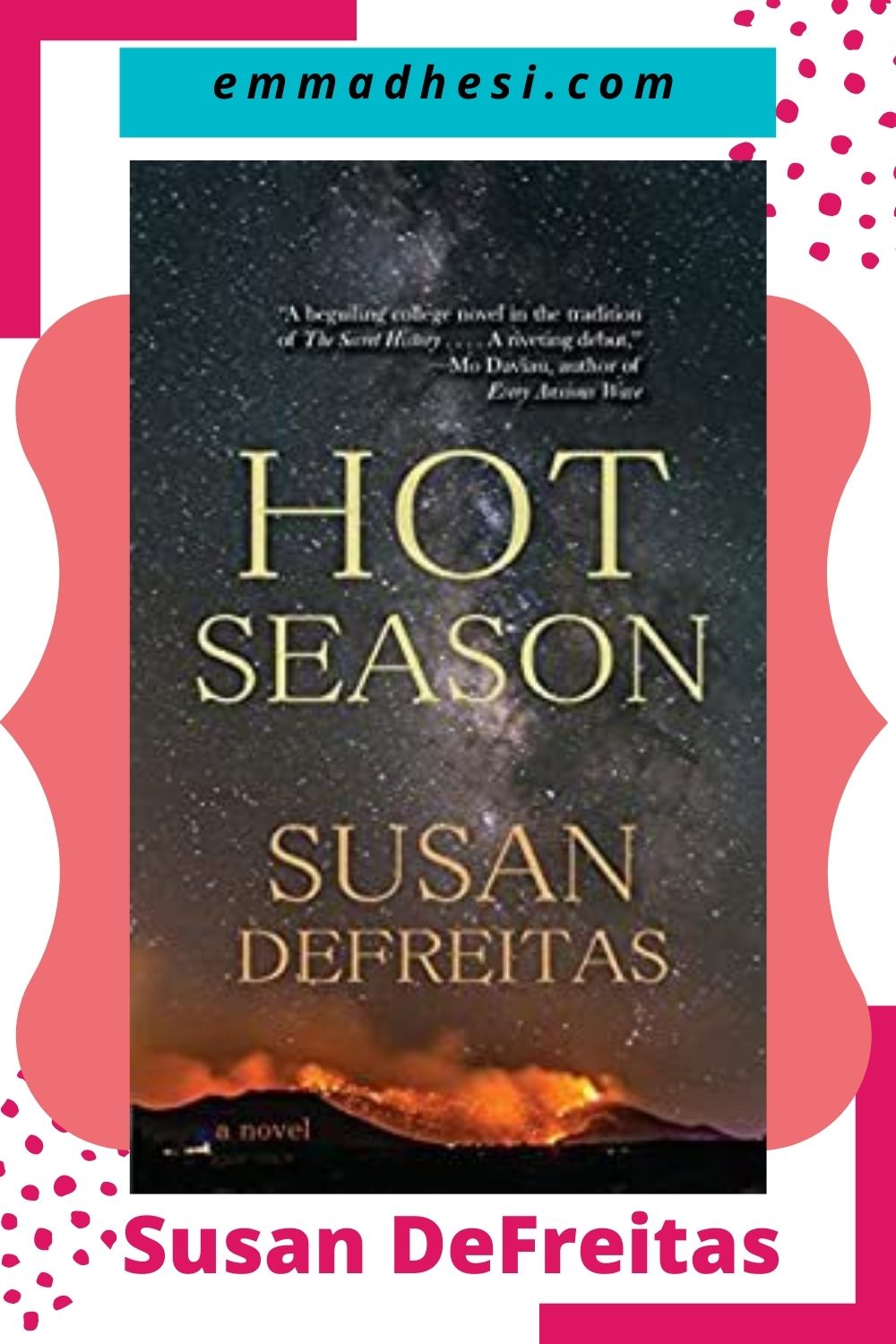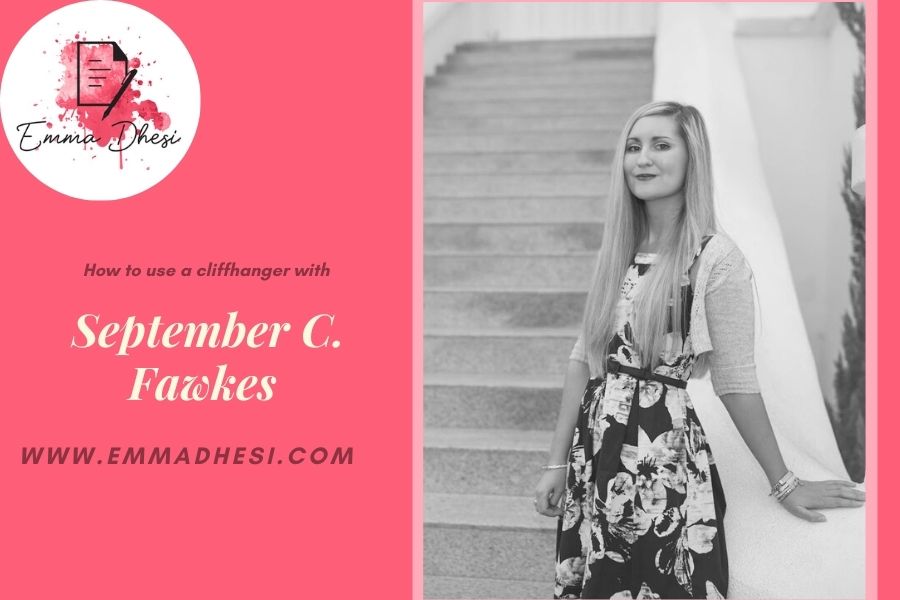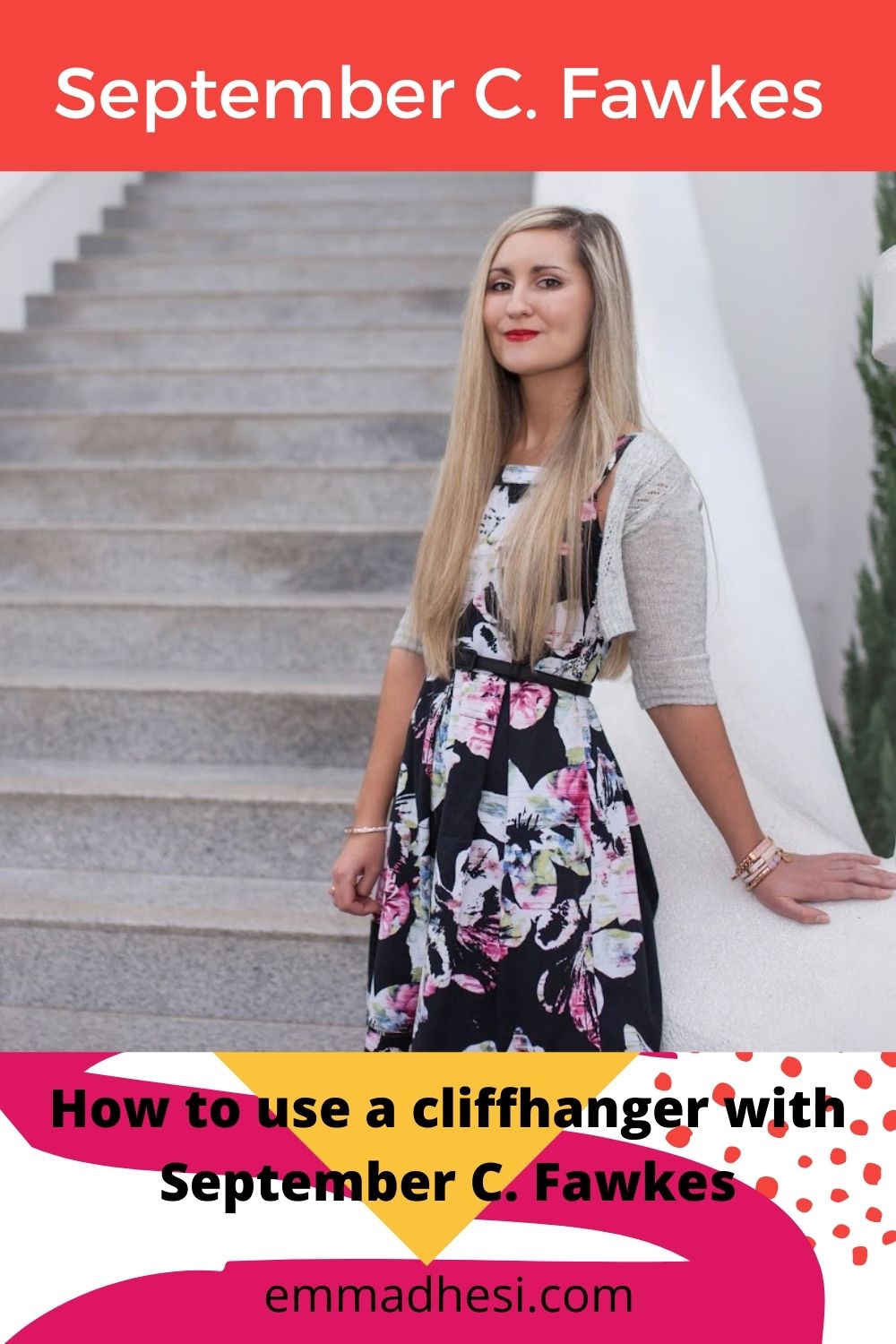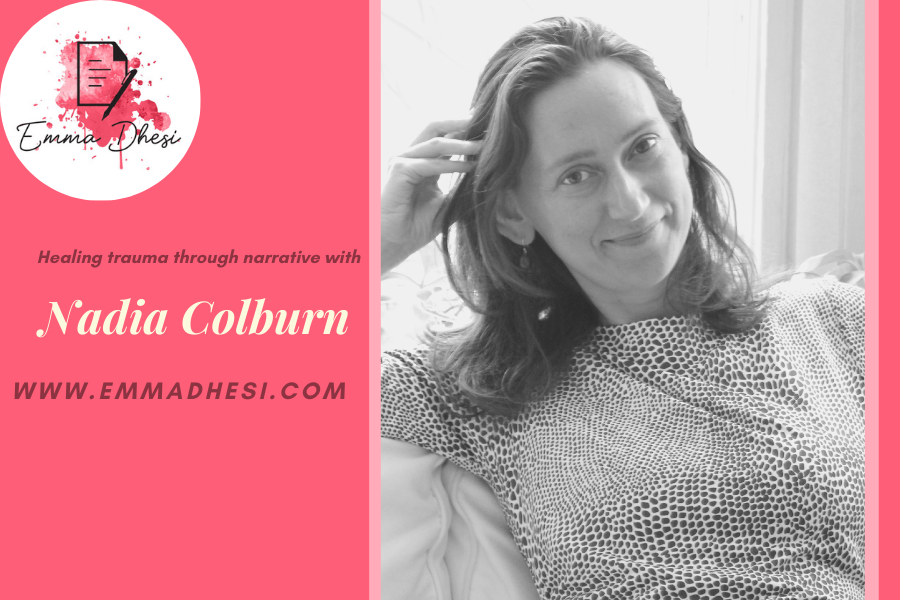
Healing trauma through narrative with Nadia Colburn
Healing trauma through narrative with Nadia Colburn
Healing trauma through narrative with Nadia Colburn
Emma Dhesi 00:00
Hello, I’m Emma Dhesi and welcome to another episode of turning readers into writers. If you’re brand new here, welcome and here’s what you need to know. This is a community that believes you are never too old to write your first novel, no matter what you’ve been up to until now, if you’re ready to write your book, I’m ready to help you reach the end, I focused on helping you find the time and confidence to begin your writing journey, as well as the craft and skills you need to finish the book.
Each week I interview debut authors, editors and industry experts to keep you motivated, inspired, and educated on all things writing, editing, and publishing. If you want to catch up, head on over to emmadhesi.com, where you’ll find a wealth of information and tools to help you get started.
Before we dive in, this week’s episode is brought to you by my free cheat sheet 30 Top Tips to find time to write. In this guide, I give you 30 ways that you can find time to write in the small gaps that appear between the various errands and tasks and responsibilities that you have in your day to day life.
Now you might be thinking that you don’t have any time to spare, but I can guarantee these top tips will give you writing time you didn’t think you had. If you thought writing always involved a pen and paper or a keyboard. Think again.
If you thought you needed at least an hour at a time to write your manuscript. I help you reframe that you won’t be disappointed. Get your free copy of 30 Top Tips to find time to write by going to emmadhesi.com/30TopTips.
Okay, let’s dive in to today’s episode.
Nadia Colburn is the author of the poetry book the High shelf, and her poetry and prose have been widely published in such places as the New Yorker, American poetry review slate.com, spirituality and health, Kenyon review and elsewhere.
She’s the founder of align your story School, where she’s helped 1000s of women step more fully into their creative voice. Nadia is also a yoga teacher, a student of tick, not Han, social and environmental activist, and mother.
She lives in Cambridge, Massachusetts with her husband and two children. So today we’re going to find out a little bit more about Nadia as process when it comes to writing her poetry, and also how she put her collection together.
Was it an easy job? Or is it difficult, she’s going to give us all the insider knowledge. And if you are interested in how meditation might help you with your writing, Nadia is the leader to ask.
So let’s find out a little bit more today.
Well, Nadia, thank you so much for joining me today.
It’s delightful to have you on the show.
Nadia Colburn 02:55
Thank you so much. I’m delighted to be here.
Emma Dhesi 02:58
And I wonder if you could just start off by telling us your journey to writing and how you got to where you are now.
Nadia Colburn 03:05
Sure. So I grew up in a house full of books. My parents both worked in New York City publishing, and my dad was a writer.
I he’d work, you know, writing in his bedroom on the weekends. And so I grew up definitely as a reader, and didn’t really consider myself a writer and but love to read and actually wanted to kind of forge a path different from my family’s path.
So went to college determined not to major in English. But as it turned out my favorite classes were all English classes. So I majored in English. And then I went on and got a PhD in English literature. And in the middle of that degree, getting that degree, I’ve decided to have a child and got pregnant with my first child.
And that was really when I had written a little bit in the past. But that was when I felt Wait a minute, I really want to be focusing more on writing my own work than just studying and teaching other people’s work. I mean, of course the to go hand in hand. But interestingly, I was studying at Columbia University, and there’s a Ph.D program and an MFA program.
And the MFA program just wouldn’t let me take any classes and the MFA program, they were very separate. So it was like these two sides, the analytical side and the creative side didn’t have a way to really interact at you know, that school so I ended up taking classes with some of the people who were teaching in the MFA program like Lucy Blackboard, I was teaching there and she had an amazing poetry workshop that she taught for years outside out of her home With a lot of her former students who had gone through the MFA program, so I was super lucky to get to study with her.
But it felt like there was this weird divide. And I think, as I, you know, became a mother, I felt like I wanted to integrate the different parts of myself. And, and creative writing felt like a way to do that.
And now those different things that seem divided seem like Well, that’s so strange, like, why would that be divided, but there are all these weird divides in our you know, and that was related to this divide between kind of the life of the mind, the creative life, the life of the body, the life at home, the life in public, you know, all of these things in my 20s.
And early, you know, felt like they were all kind of separate realms. And I really wanted to do work to integrate them. So that’s really, I think my writing comes out of this desire for integration.
Emma Dhesi 05:58
And so, I love makes me laugh. First of all, that you were determined not to follow your parents, but actively so many of us do. That makes me giggle. But I, we’re going to come on to a bit later, but I know that you study yoga, and you teach yoga.
So it was that kind of, were you learning it in your 20s and 30s, as well. And so this is where the idea of the body and the mind and the heart kind of these, you were doing everything as distinct bodies of study, rather than one holistic study. Right?
Nadia Colburn 06:28
You know, I took some yoga classes, and even in high school, I was like, my friends and I dabbled a little bit in meditation, but I wasn’t aware of yoga and meditation at that time is really being important in my life, it really felt like the changes in my body as I was pregnant, like that became my yoga and meditation.
And, and the kind of different kind of attention that parenting demanded, because I had been really trained to use my mind and to kind of walk in a straight line. And I had been, as a, you know, younger person, a ballet dancer, it was all very kind of controlled. It was like breaking the out of this shell of control.
Like, wait a minute, and you just have to go with the flow. And this is like a new, new thing for me. So I think that, you know, those lessons were my first lessons and mindfulness and paying attention to the body.
And then later on, really, about 10 years later, then I got really deeply involved in meditation and yoga.
Emma Dhesi 07:41
Okay, is yes, it’s funny how motherhood has a tendency to reframe things in many different ways, either the way that we’re thinking or the way that our, the direction our life is taking, or for us as writers, the direction our writing is taking, talk to a lot of women and that has been often been quite a pivotal moment or a catalyst for something new and something.
Just a new understanding of life, I suppose. Yeah.
Nadia Colburn 08:10
And it’s so interesting, because I actually, a lot of my writing is a comes from motherhood. And then I went into this question or challenge in some way that, you know, when you start talking about motherhood, it seems exclusive, like it’s only then of interest to mothers, right?
And it feels like oh, well, if you’re a woman who isn’t a mother, then this doesn’t apply to you. Or if you’re a man, this doesn’t apply to you, or if you’re a different kind of stages of life.
And I think that that’s so really interesting. In a way I’m have an essay that I’ve written about reading Melville, and this kind of awakening and motherhood and and talking about how everyone reads, books about all kinds of things. You know, you’ve read a book about a man going off to sea and you don’t think well, I can’t read that, because I’m not a sailor setting up to see.
But if you hear a woman talking about her experiences with motherhood, it either feels like, Oh, I had that experience, or I didn’t have that experience, or another mother can listen and think, Well, that wasn’t my experience of motherhood. So that doesn’t apply to me.
And I just always want to kind of put it in the context of all those other experiences we have of you know, Cheryl Strayed walking the Pacific Crest Trail, it’s not only for people who are getting what the Pacific Crest Trail it just happens that this was my kind of, you know, as it is for many people, but, um, that that motherhood can be a topic that can be of interest to people who aren’t only mothers.
Emma Dhesi 09:40
Yeah, yeah, it’s such a good point. Yeah, it does seem feel you’re right, it does. mother who does seem to be kind of shoehorned or writing about mother who does seem to be shoehorned to only those women who have been through it and so have had a shared experience but it’s I love that analogy of Melville.
You know, the comparison with Melville. Yeah, I’ve never I’ve never caught a whale or been swallowed by a whale or anything, but I can still enjoy the story. Exactly. Yeah.
And so in your poetry and your creative non writing, is that the main theme that you write about, are there other things that you kind of gravitate towards with your writing.
Nadia Colburn 10:18
So I wouldn’t say it’s the main theme. But it’s one of the themes. And I think, for me, it is a theme of kind of, I’m really interested in these moments of waking up, and being aware of other perspective, other ways of being.
And so in my own personal life, this kind of waking up, you know, it never just happens once, right? It’s always like, a long journey, an onion with many layers that we peel back.
And so as I started to listen to my body, and kind of pay attention to the different ways of being that children have really, that I started to remember, early childhood trauma, so I also write a lot about trauma.
And again, I feel like the flip side of that trauma, though, is integration, really writing about integration and writing about healing. And not only individual healing, but healing that we can do collectively in society.
You know, there’s so much to be healed, and I’m also very interested in environmental healing as well.
Emma Dhesi 11:35
Okay. Um, so with the, with the childhood trauma, is that sort of, you know, the big stuff that we think of when we say the word trauma, or is it even those kind of small things that are part of growing up and a part of everybody’s experience of childhood trauma, if you see the difference I’m trying to make.
Nadia Colburn 11:58
So it was trauma with a big T. But I think also and, you know, I began to remember sexual abuse in my early childhood and, but I think that as that happens, and so I’ve done a lot of work around trauma now, and obviously, I’ve read a lot about it.
But I’ve also worked with a lot of students who write about trauma as well. And that distinction between kind of like big T, little t trauma, I think, is important to make, but also big t little t trauma often work in similar ways.
And there’s never in any life, just one, trauma. And I think that that’s very important, too, for me and my own understanding to realize that everything is interrelated, you know, so there was, yes, one specific incident, and, you know, specific kind of trauma, but then there were all kinds of other traumas that are both personal and social that that we’re interacting with all the time and that shape, who we are, and how we how we understand ourselves, how we interact with the world.
And, in fact, they’re all kind of part of a system.
So you know, what happens inside the home and what happens outside of the home and micro aggressions and macro aggressions, right. Like, I think we’re learning more and more how their whole systems and were formed within those systems.
And so writing as a way of kind of coming to narrative, both seeing the systems that were already part of and then wanting to change those systems at the same time.
Emma Dhesi 13:49
Yeah, excuse me. Yeah. Okay.
No, I that’s it, it’s, it’s nuts. It never ceases to fascinate me how writing how using a narrative can can be so healing even, you know, the big tm, the small t, and those big life changes or big life experiences that we have like divorce, like illness, things that come later in life, not and I don’t mean just journaling, but just how we can incorporate those into our writing can be so transformative.
They can be again, a talk more catalysts, but it can be a catalyst from moving on to next to understanding what happened and working through it, I think. So tell me about the environmental healing as well.
That’s an interesting aspect.
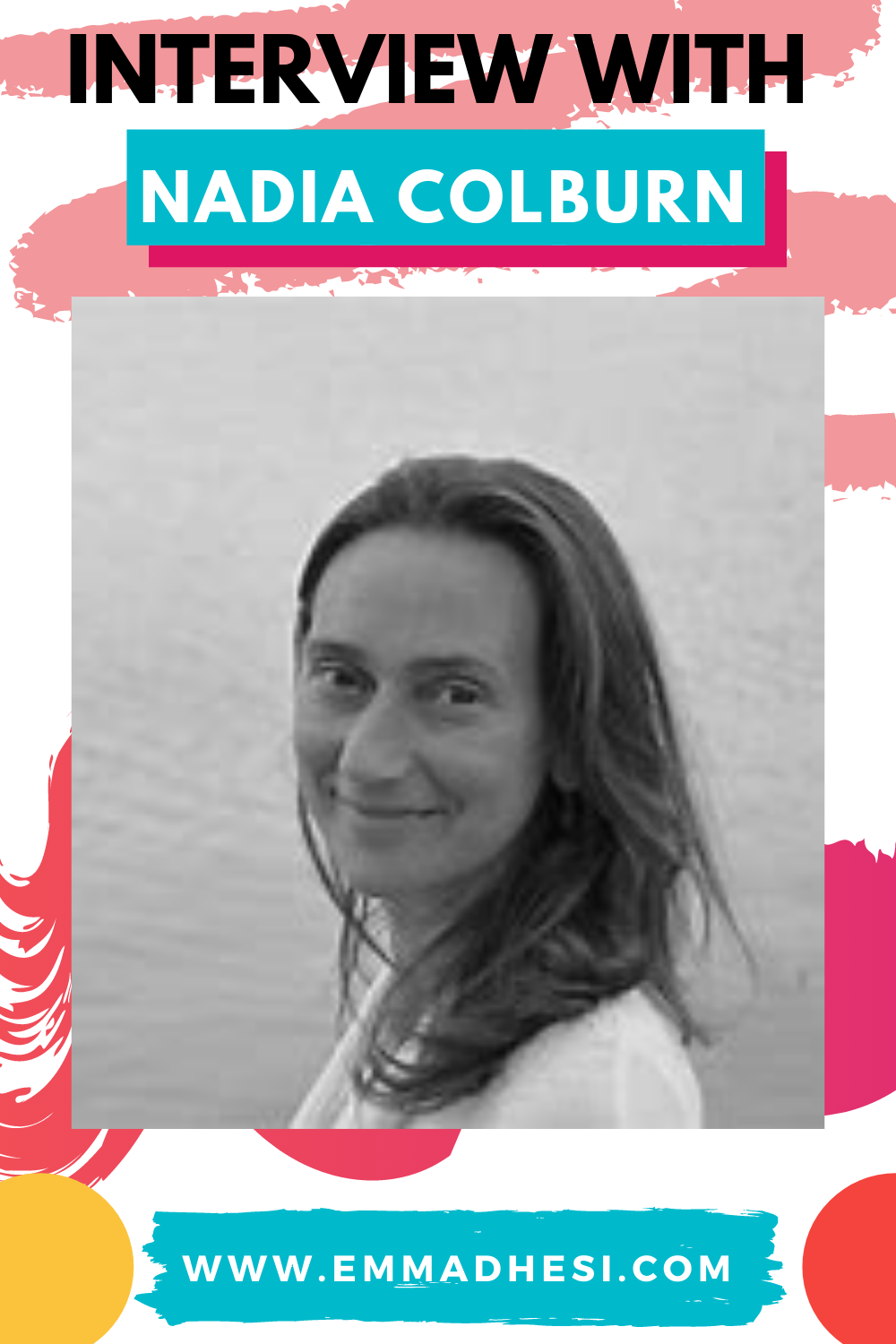
Nadia Colburn 14:41
Well, I’m consider myself an environmental activist as well. And so I think, you know, there are so many different forms of trauma in our world. Racial trauma, class trauma, all kinds of, you know, all kinds of trauma.
And then there’s this big kind of environmental trauma, which we’re all living under where our relationship to the natural world has been. Is has has become one of violence basically, like we, our interactions with the natural world have have have been not respectful.
And and we have done damage to the world and are suffering the consequences.
And so I’m interested in how can we come into right relationship in?
And really, you know, there’s a short timeline in terms of what’s let’s actually get to work and try to address climate change and environmental degradation.
Emma Dhesi 15:54
And so do you see I’m using story using narrative writing about it as a way of changing people’s opinions of the environment and how they approach the environment? Do you see it as a, as a teaching tool? Almost?
Nadia Colburn 16:11
Yeah, I mean, it’s really interesting, because I’ve been a member of extinction rebellion, who wants to, you know, go out and shut things down and have direct action. And for a little while, extinction rebellion, it looked like it was really building there was going to be this huge moment.
And then there was the pandemic. And so is that the most effective way, you know, a lot of extinction rebellion.
Actions here have been quite small. So there’s a part of me that wants to just say, Oh, we should all be, you know, going out and being activists, but what’s the most effective way to make change? Is literature the most effective way to make change? I don’t think so.
But what do i think is the most effective way to make change? I’m not really sure. And I don’t write literature.
As an activist, I write literature, I would say, because I love literature, because, or in so far as it’s an activist for, for honoring what I love, right, and like a love activist, which I think, is also actually a form of activism. It just, there are many forms. So one of I can’t quite remember who it is that said this.
But there was a very well known environmental activists who said, you know, we have the technology, we have the understanding to make the changes that we need to make. So I’m not sure that what we need is more technology, what we need is a spiritual revolution. so that people can, can live differently.
And I don’t know. But I’m not a revolutionary, like, I don’t believe in revolutions, like with arms, you don’t have a spiritual evolution with arms. So each of us can do our own little work.
And literature is one kind of love method, I guess, to have that spiritual revolution. It but I think that’s a good question. Like, really? I don’t know, I don’t know how change is gonna happen. And how does literature fit in but
Emma Dhesi 18:17
it definitely has a place at certain lips just lately has has forged change. I just think about in the UK, for example, a long time ago, no, but this here in the UK, the the story of like Bussi that did change animal welfare in the UK, and it just it was, it can galvanize change.
So it’s, I applaud you for doing it. And I think more and more people are and it’s, it is powerful.
Nadia Colburn 18:45
Yeah. And it’s also that, you know, I think of writers as truth tellers. And so this is the backdrop backdrop against which we’re all living.
So you know, the novel weather, you know, anyone could have written a novel called weather, right?
Because we’re all living against the external weather, the internal weather, but that external weather is now a manmade external weather that is no longer you know, just use it’s so interesting, right? Because the weather used to be the example of what we had no control over.
Now, it’s really an example of look at what we’ve done.
Emma Dhesi 19:28
So interesting. Yeah. Now I’d like to, I’d like to ask you about your collection of poems, the high shelf, I’d love to know more about it and where the inspiration for the collection came from, and, and your process of putting it together.
Because when I’ve spoken to poets in the past, I’ve realized they’ve shown me that it can take quite a long time to bring a collection it can take years in fact.
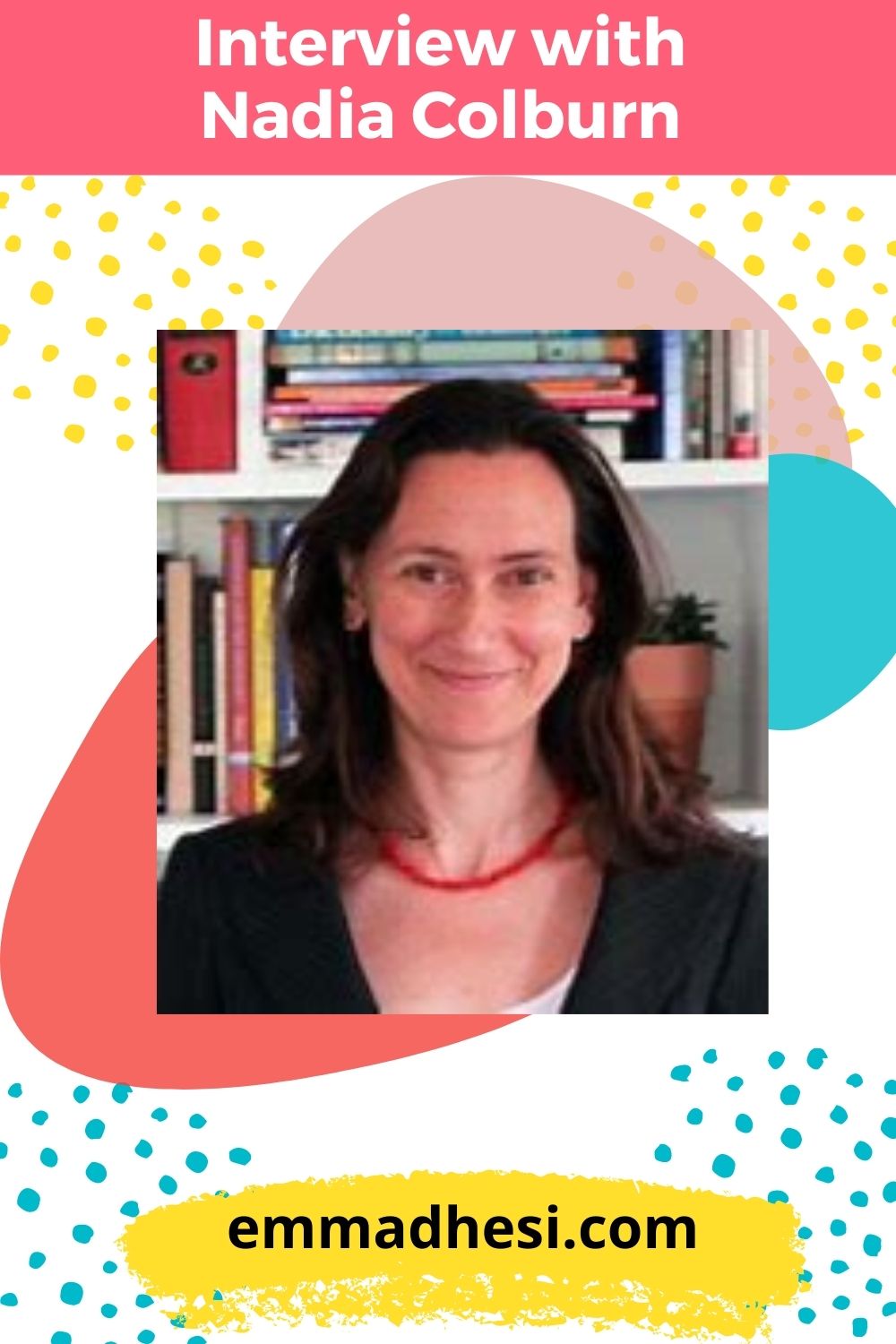
Interview with Nadia Colburn
Nadia Colburn 19:54
Yes, well, you’re talking to the right person. If you want to hear about the collection that took a long time. come into being I wrote, I had a draft of this block.
A good 15 years before it was 13 to 15 years before it was published. So I, my project in this in this book was to really pare things down, I wanted to explore silence, I wanted to explore what wasn’t sad, I wanted to kind of always have language working against whitespace.
So I put the book together. And at the time, my poems were really widely being published, most of the books, poems had been published.
And it was a finalist, I was sending it out to first book contests. And it was a finalist. And it was a finalist.
And it was a finalist. And it was a finalist, like 20 times, more than 20 times it was ridiculous. And eventually, I just put it aside. And I moved on to other things. And I actually moved on to writing creative nonfiction.
So I said, Okay, I’m not sure what’s going on with this block. It’s kind of crazy to keep doing the same thing. So I want to put it aside, and I wrote, actually a whole memoir about early motherhood and kind of some of the things we’ve talked about here.
And it was actually at the end of kind of writing that memoir, just when I was had an agent who was just starting to send it out for to editor for publication, that I started to remember this childhood story, experience.
And so I pulled the memoir, because I was like, wait a minute, there’s a whole other story that I’m not telling. And let me just let me just pull it for a little while. And you know, I’m sure I’ll be able to put it back together pretty soon.
I just need a little break. And that little break took many years, actually, to I kind of had to like, I thought it was just like, let me make a little adjustment. But I kind of had to take everything apart internally and put it all back together.
And at the end of that, then I still had this manuscript. And at a certain point, I said, Well, let me just see what happens. Let me let me go back to it. Let me rearrange it a little bit.
Because now I know more this whole book was about saying and not saying and silence. And I have a better sense of what some of that silence was that I was navigating that I wasn’t really, it was there in the book.
But I didn’t consciously know it. So I wanted to honor the way the book was written. But I also wanted to give readers a little bit more sense of what was going on.
So I made some changes to it to kind of suggest things, but I wanted the book also to enact that sense of, because I think the thing about one of the things about trauma is that as healing as narrative is, there’s also the way in which, you know, trauma takes us into a unnamed space. And literature can also give kind of expression to that unnamed space.
Like if we just name it too quickly. It’s almost like not honoring the actual experience itself of going into that namelessness.
So this book, to some extent, is about that is about or inax in some ways, the places where it’s harder to make narrative meaning, which I think is one of the things that’s really beautiful about poetry, right?
It’s like, narrative is so powerful, but there’s so much experience outside of narrative as well, how do we use language to point to those experiences as well.
So anyway, so the long story short, is I sent my manuscript out again, and it was accepted. And it was published, you know, years after really I had written the bulk of the poems.
Emma Dhesi 24:20
Well, first of all, let me say congratulations for having so many being finalists so many times. I’m sure it got frustrating after a while, but that’s a real achievement.
And did you feel back then that, okay, I know, I’ve got something here. I know, I’m writing Well, I’ve got to just carry on. Or did it? Did you have that feeling of, oh, I’ve been rejected again.
Maybe I should just give this up and move on to something else, or how did that impact your your psyche, I guess? Yeah.
Nadia Colburn 24:53
It wasn’t great for my psyche. Honestly, it was. I mean, in some ways, I think in some ways Like enacted what the book was about, which was of kind of, you kind of know, I kind of knew, but there was something that wasn’t quite working.
And so maybe it’s not completely coincidental that the book actually had a story that it was telling that wasn’t completely there. So maybe readers at the end, were kind of like, I really like this.
But maybe something’s not working in it. I don’t know. I’m not sure. But it felt frustrating, more than affirming. Yeah, yeah.
Emma Dhesi 25:31
I think though, it’s lovely. It’s generous of you to share that with us, because there’ll be listeners who perhaps have had some rejection already and are feeling
Oh, you know, maybe I should just give this up. Maybe I’m not meant to be doing this.
But that idea of resilience and being persistent and just okay, maybe side shifting for a little while, before coming back to it. The upshot is, don’t give up.
Nadia Colburn 25:55
Definitely don’t give up. And also, I think two things, you know, there’s the part of the story where, you know, maybe it needs a little bit of shifting, maybe it needs a new perspective, not sometimes the case.
But I also have had the experience with publication, which is that I was sending just individual poems out and getting rejections of objections and rejections.
And then I moved up to Cambridge, because I decided to I really wanted to take my poetry writing more seriously. This is before I wrote this manuscript, many, many years ago, and, and so I started to, I moved up to Cambridge, Massachusetts, to work with the poet Jory Graham and I took her class and I was really part of a whole poetry community and part of the whole poetry world.
And then I started to send my poems out that, and then I started to get acceptances, and I got a whole lot of acceptances. And those poems that were getting accepted, I had not made any revisions to they were the same exact poems that I had sent out before.
But I had a better cover letter, because it seemed like, Oh, I was part of the poetry world.
And then I got one or two publications, maybe because I knew someone. And they, they read my poem, they read it slightly different. And then I had some publications, and then it was just like, it’s snowballed.
So there’s the like, also some networking that happens in the poetry world that really has nothing to do with the quality of the poems or needing to tweak them or not.
So I’m also sharing that for listeners.

If you’ve been working on your novel for years (perhaps even decades) the maybe it's time to consider working with a coach.
If you have multiple versions of your novel and you don’t know which works best, are scared nobody will like your book and don't feel like a 'real' writer, then my guess is coaching is the right next step for you.
Find out more and sign up for your free Clarity Call here: https://emmadhesi.com/personal-coaching/
Emma Dhesi 27:36
Thank you. Yeah, know that I think that is really important to, to share that.
Thank you. So I wanted to go on and talk about your process itself for writing your poetry how, how do you find that? And is it kind of a slow line by line? Or is it Whoa, a whoosh, you suddenly get inspired, and it comes?
Nadia Colburn 27:58
Well, it’s really changed over time. And I think when I was writing the poems in the high shelf, I had a kind of feeling almost. And then I tried to give language and images to fit the feeling.
And those poems, I would say, it was more like almost creating a collage. And I was really inspired by the work of Joseph Cornell when I was creating these poems. And so really thinking about constructing things with language.
And that was a different process that what I often have now, and I think, partly because I have more, well, I’m just older, I’ve lived more, I’ve done a lot of personal healing, and I have a mindfulness and meditation and yoga practice.
And so now it feels more like I’ll kind of be walking around and maybe having an idea for a poem.
And then it’s just kind of stewing. I don’t even know if stewing isn’t the right word, but germinating in the back of my mind.
And then I’ll often just do a little meditation, and then sit down, and then the whole poem will come out.
So it does feel now more like it’s there’s more flow to the process or that it’s happening internally and then it just comes out more easily.
Emma Dhesi 29:36
Do you think that’s through having had the years of practice now that you’ve had that you’ve This is organically evolved for you?
Nadia Colburn 29:44
I do think so. I think so.
And I think that there’s also just, you know, in yoga practice and in meditation, we’ll we’ll talk about that kind of channel of air the Shema, if you can call it right like that. central channel, and, or in something like acupuncture where there can be like energy blockages.
And I feel like I’ve just done a lot, a lot of work over the years to try to get those energy blockages cleared out, and I have more strategies for keeping them cleared out more. So I do think that my writing process is different as a result.
And the poems that I write are very different to I mean, my poems are much more open now. So I was really inspired by Joseph Cornell boxes. And I thought about putting on the cover of my book, Cornell box.
And then, at the end, I thought, you know, but really, this book is kind of moving through that into into a kind of more expansiveness. And I wanted to kind of have a cover that represented not only the person I had been when I wrote the first draft of the poem, but also more me now.
So I ended up choosing an image of a film a painting of a sky, with birds in it.
And so I wanted that I wanted to be outside of the box for the image of the book, and I think my poems now are much more open than they were when I was younger.
Emma Dhesi 31:25
I wanted image to represent that. Yeah. So you’ve mentioned that your, your, your meditation plays a part in your your writing practice now, and, and on your writing. So what are you writing? Now? What’s there?
How are you using it to facilitate your writing at the moment.
Nadia Colburn 31:45
Um, so I go through periods where I write a lot of poetry, and then periods where I don’t write as much poetry and write more prose.
So I am actually going back to try to pick up the pieces of an old post project, part of which actually comes from that memoir that I wrote, and then put aside all those years ago.
So but this is an essay, a kind of memoir, in essay form, about, about reading, and kind of my own personal journey through through my body, through motherhood, through through trauma in the world, some of my travels, and really how both the books that I read and my experiences, how I came to read and experience the world differently.
Emma Dhesi 32:40
And so you think this might become a series of essays kind of taken from that memoir?
Nadia Colburn 32:46
Yeah. So um, see, I’m hoping that it will become kind of memoir in essay form. Yeah.
Emma Dhesi 32:54
Oh, Nadia has been very insightful talking to you.
I’ve really enjoyed our conversation and learning and how you write your poetry, how your collection came together, how it’s never a fluid line, that sometimes there’s it’s the gray areas in between that make it or frustrating, but also magical.
So thank you very much for sharing that with us. And I wonder if you could tell, tell listeners where they might find out more about you and perhaps be able to connect with you online.
Nadia Colburn 33:21
Absolutely. Thank you. Yeah.
So you can just google me, Nadia Colburn as Nadia, N A D I A Colburn C O L B U R N .com That’s my website.
And I have a lot of free resources for writers there. You can buy my book on my website, or you can buy it at your local bookstore, Amazon, but I also have meditations for writers recording.
So if you want to practice meditating, before you can write, you can download some of my recordings, and then meditate and write.
I have video where you can do some yoga and some writing together ebooks to help with the writing process, all kinds of things.
So yeah, I’m just at Nadia Colburn.com, and I’m also very easy to contact through my contact form. So I always love to hear from people.
Emma Dhesi 34:11
Oh, fantastic. We’ll be sure to link to that in the show notes that super well, not yet.
Thank you again for your time. I really appreciate you chatting to you today.
Nadia Colburn 34:20
Thank you so much, Emma. It’s such a pleasure. I appreciate it too.
Emma Dhesi 34:25
Well, thank you so much for joining me today. I hope you find that helpful and inspirational.
Now don’t forget to come on over to facebook and join my group, turning readers into writers.
It is especially for you if you are a beginner writer who is looking to write their first novel.
If you join the group, you will also find a free cheat sheet they’re called three secret hacks to write with consistency.
So go to emmadhesi.com/turning readers into writers.
Hit join can’t wait to see you in All right. Thank you. Bye bye
Support The Show
If you enjoy the Turning Readers Into Writers podcast, you can now support my time in producing the show with Patreon.
If you find that the podcast adds value and you’d like to help support the show, please consider supporting me on Patreon for $3.00 per month and you’ll get bonus podcast content, as well as a personalised thank you from me, and a shout out on the show.
If this interview with Nadia Colburn was useful, you’ll love:
Shortcuts for Writers


Emma Dhesi
Emma writes women’s fiction. She began writing seriously while a stay at home mum with 3 pre-school children. By changing her mindset, being consistent and developing confidence, Emma has gone from having a collection of handwritten notes to a fully written, edited and published novel. Having experienced first-hand how writing changes lives, Emma now helps beginner writers find the time and confidence to write their first novel.


